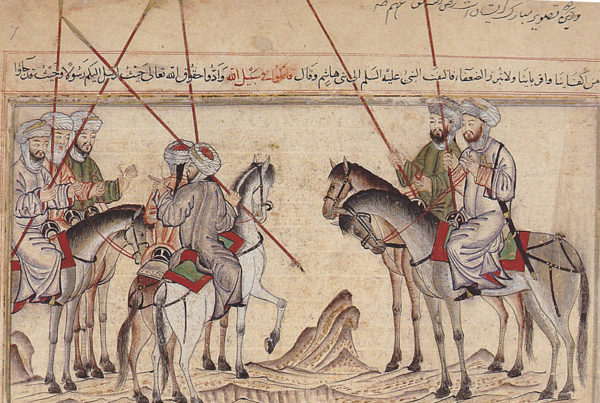Violence is as squalid, brutal and destructive to the psyche as to the body… yet why does it fascinate us so? Where lie the root of the teenage gang’s drive-by shooting or the carnage of Okinawa or Stalingrad? One of the more recent attempts to answer this comes from Malcolm Potts and Thomas Hayden’s Sex and War; (Benbella Books, Texas, 2008).
The first reaction to the book is to applaud the intent. There is a strong temptation to compare it to Barbara Ehrenreich’s Blood Rites: Origins and History of the Passions of War (Henry Holt, New York, 1997). However, Enrenreich was an essayist who concluded that it was humanity’s long experience with predators that laid the roots of sanctified violence on the human psyche. Her book is an interesting exploration but her conclusions were as hard to swallow as weevil-riddled hardtack.
Potts and Hayden explore the human penchant for violence from a more scientific basis, drawing heavily on primate behavior, evolutionary theory and anthropology. Unlike Ehrenreich, they display no signs of contempt for fighting men or scholars (and those who are both) who have made earlier attempts to explore the same issue. This makes the first half of their book both fascinating and a useful survey of the violent streak in humanity.
Potts and Hayden don’t hesitate to tread into areas often deliberately passed over in the past, and they make linkages between violence and sex. Violence among chimpanzees, primitive tribesmen and today’s urban street gangs is one way to get more sex… if successful — while one motive for the civilized soldier is that he is protecting women and children. So far so good… then the book takes a hard turn into supposition.
Mankind still behaves as we always have and the chimpanzee and the Paleolithic hunter are not buried too deeply, but our technology and organization for war threatens to kill us. The authors have noticed that where women are more empowered, society tends to be more peaceful and stable. Fair enough but is this enough to head us off from disaster?
I think the authors forget that women are not inherently peaceful either and, when threatened, the available evidence suggests their violence can be even more purposeful than that of the men. They forget Kali (the Destroyer Goddess in Hinduism), Ishtar (the Goddess of Love and Battle in Babylon) and also that the only deity dedicated to berserk murderous fury was Morrigan/Morrigu, a goddess of the Celts. A world with more empowered women (and good luck getting that to happen in the Islamic nations, by the way) might be moderately safer but when the triggers get pulled and the buttons get pushed, there will be no mercy.








